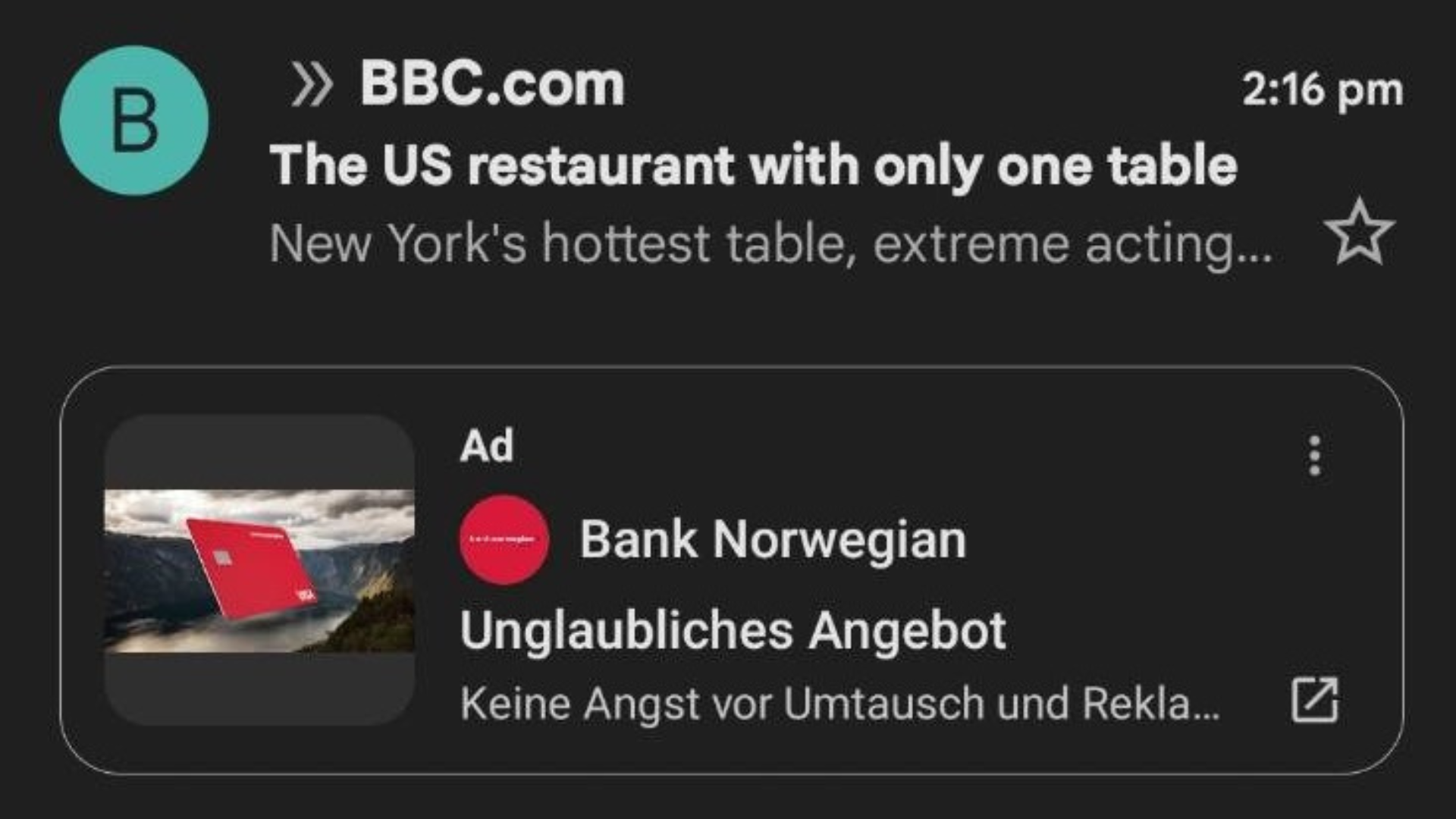Blocking Gmail ads is possible! Here's how in 2025.
How to block ads in Gmail is getting more complex as new Gmail advertisement is more intrusive than ever, in your mailbox, in your Gmail app, everywhere. But we've got a solution!
New Gmail advertising goes too far
For many, Gmail has been a go-to email service, valued for its clean design, ample storage, and powerful features. But with recent changes to Gmail’s advertising strategy, more users are finding their inboxes cluttered with sponsored ads that do feel a bit too intrusive. Thus, Gmail ads feel more overwhelming than ever, and the tactics Google uses are not exactly privacy-preserving.
This is no surprise. After all, Alphabet - the mother company of Google and Gmail - makes its biggest chunk of revenue with advertisements. It’s fair to say that Google, and thus also Gmail, is the largest ads business in today’s tech world. Ads, it seems, are the most lucrative assets most tech companies rely on - even Netflix’ profits surged since it added an ad-based subscription plan.
Yet, the saying that every privacy fan knows is more true today than ever: If it’s free, you are the product. And the free Gmail with its ads does not make a difference here. That’s why ads in Gmail must be blocked, and we’ll show you how!
Quick steps to block ads in Gmail
Most ads in Gmail are shown in the Promotions and Social tab - but you can turn off sponsored ads in these tabs in 5 easy steps!
1. Login to your Gmail account
2. Select Settings at the top right and click “See all settings”
3. Go to the Inbox tab
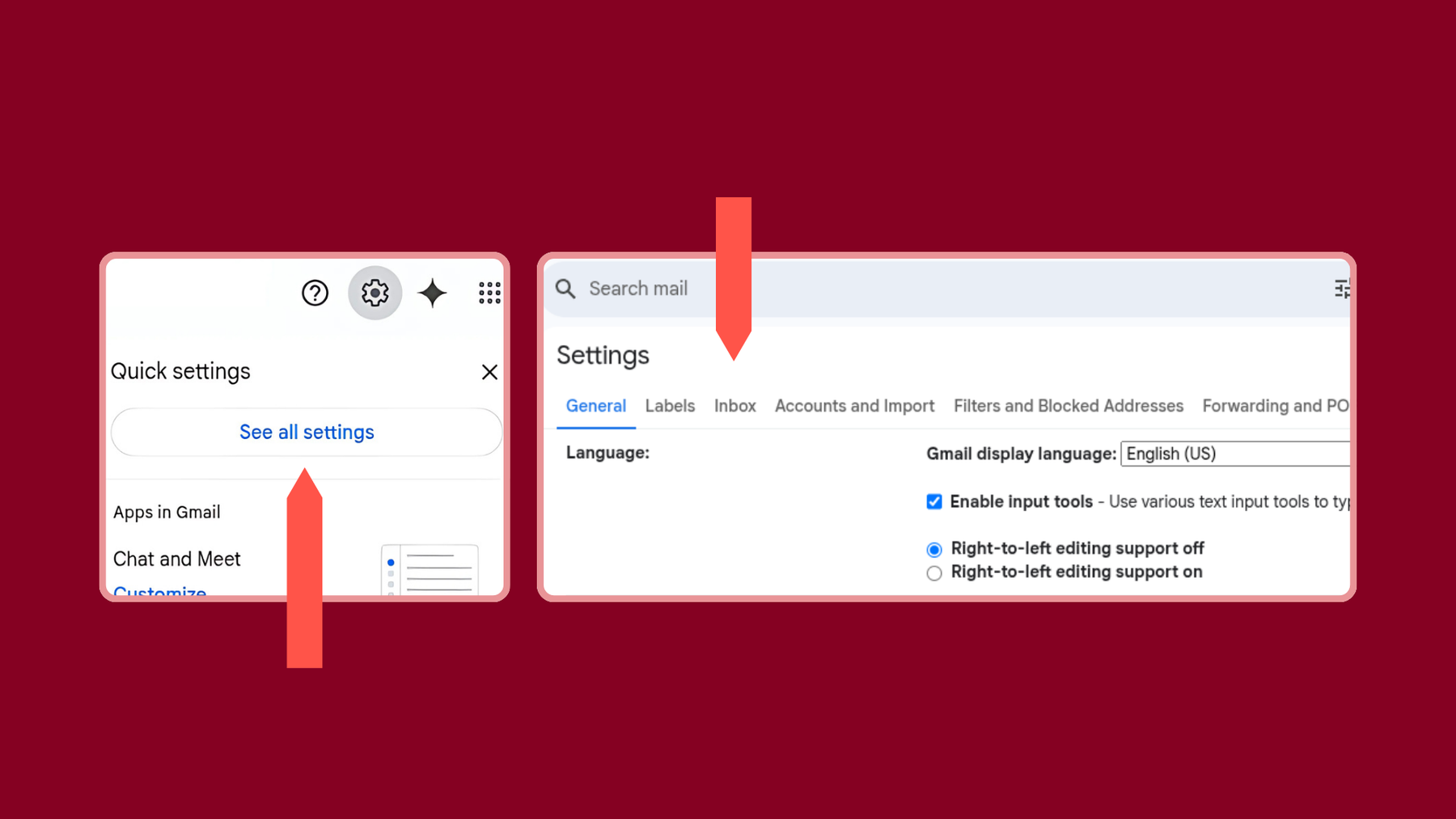

Go to Settings - See all Settings - Inbox tab in Gmail.
4. Uncheck the boxes for Promotions and Social and Forums
5. Click “Save Changes” at the bottom
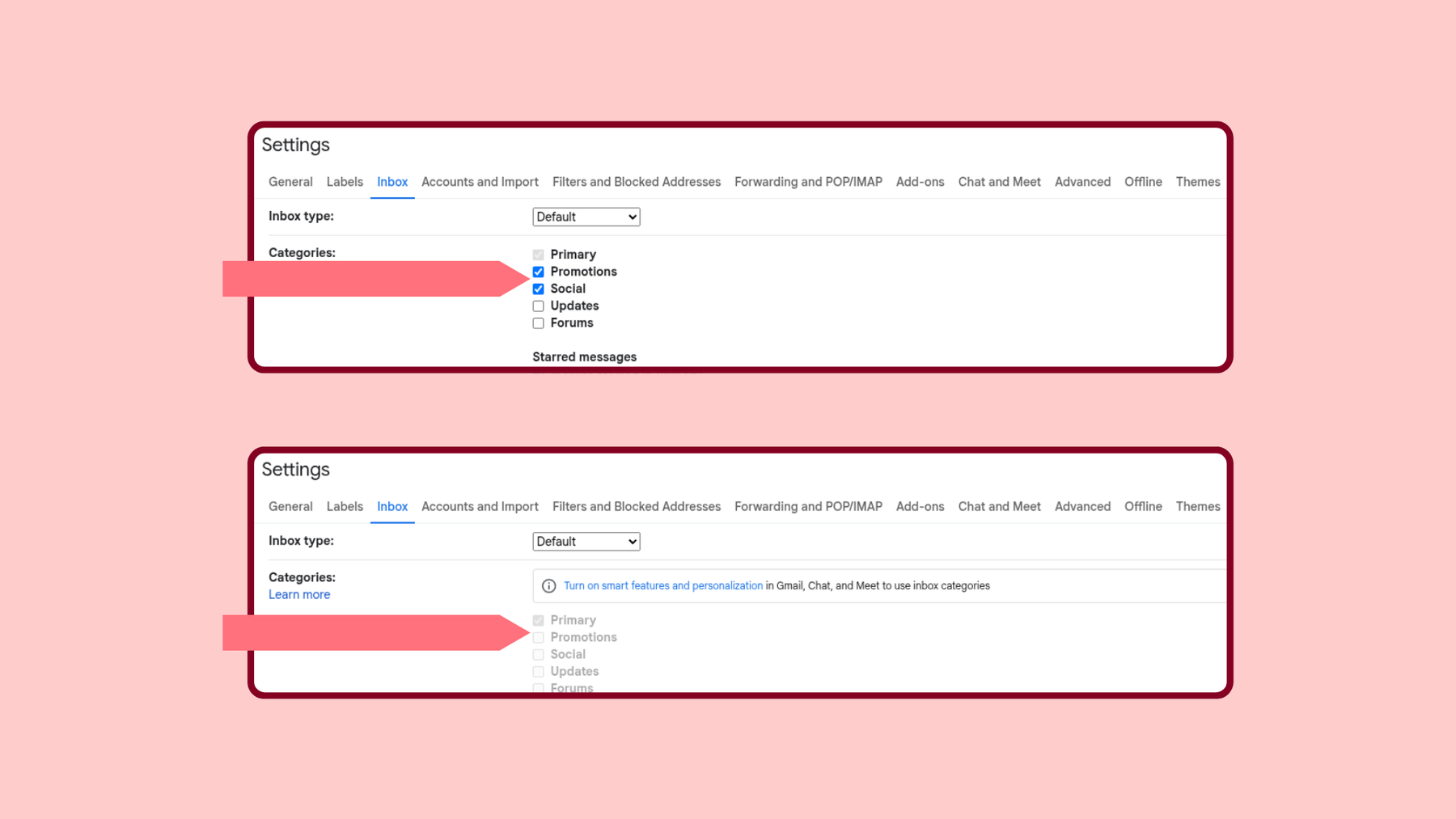

Disable Social and Promotions tab in Gmail to turn off ads.
While this will remove a big chunk of ads in your Gmail mailbox, it will not remove ads that Gmail sprinkles into your mailbox that look like normal emails. These ads are personalized based on your activity that Google tracks across all its apps (search, maps, email, etc.), and they look like normal emails - which makes them even more annoying as you might not spot that these are ads right away. There is just a very subtle “Ad” icon displayed at the top of the ad - other than it mingles in with your normal email list.
How to remove ads in your inbox
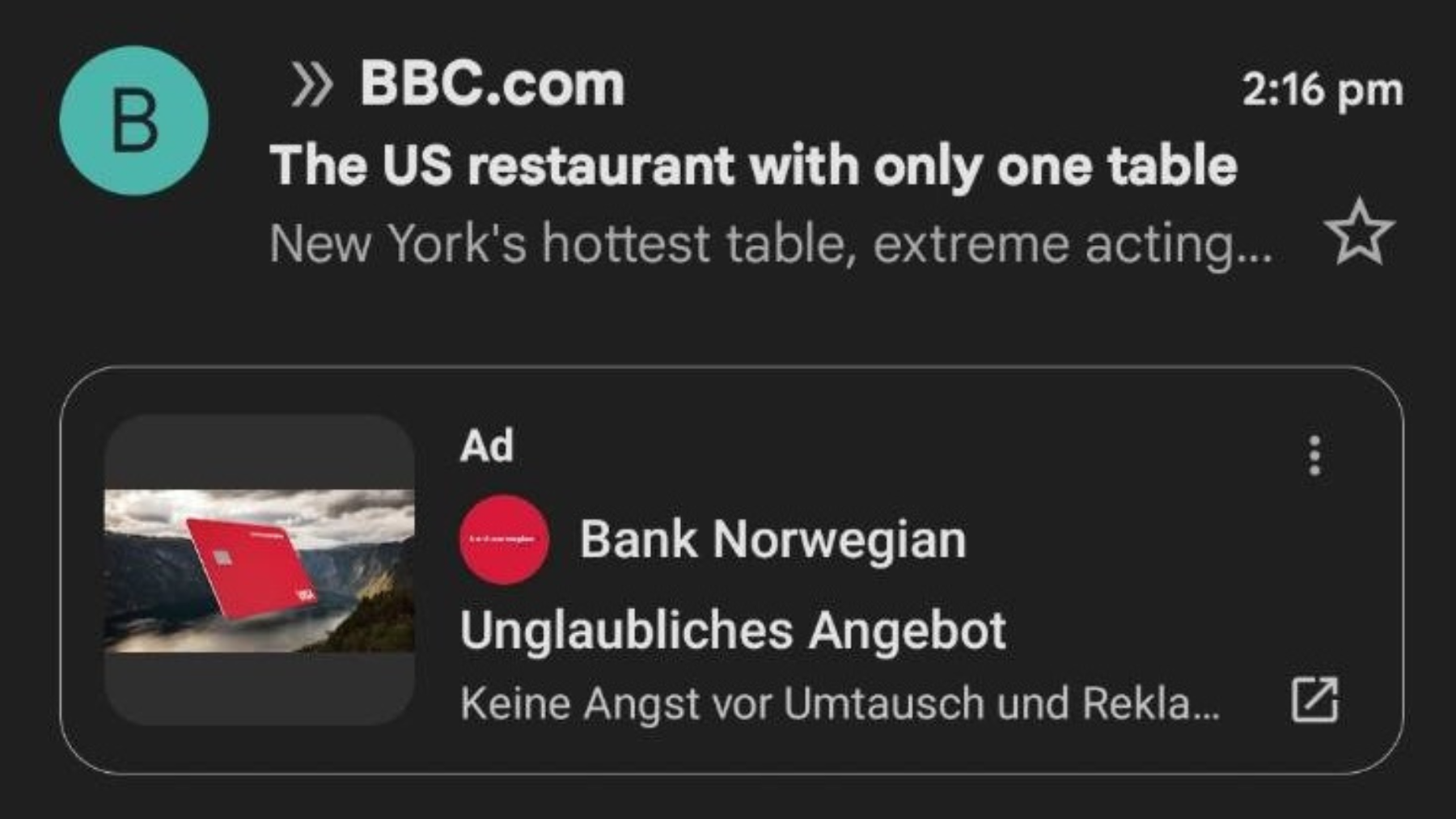

These inline ads frustrate many Gmail users as it makes managing or blocking these ads complicated. Although Google suggests clicking the three dots on an ad and selecting “Stop Seeing This Ad”, Gmail users report that this option does little to reduce the frequency or repetition of ads, which Gmail also confirms as you can only “customize your ad experience” in Gmail, but not fully turn them off. While Google does not use pop-up ads (which are even more annoying), Google has started to push inline ads directly into Gmail which are displayed in the web client as well as in the Gmail apps. These sponsored ads are hard to distinguish from genuine emails so more and more people want to block them.
This ad tactic by Google leads to frustration, which is echoed by users on Reddit, who noted how Gmail changed the layout of the delete button, making it harder to delete advertorial emails and potentially inflating ad engagement metrics - whether by accident or on purpose. This change, which seems to benefit ad performance at the expense of usability, has left many users feeling that Gmail’s user experience is more than ever driven by advertising revenue rather than user needs.
Gmail users on Reddit call Google’s ad tactics a “dark pattern” and complain that
”The worst is how they swap the position of the delete buttons for the ad mail. So you can be clicking “delete” for everything and then for the ad mail it will just open it up. Infuriating!"
"I can begrudgingly accept ads in the app, but I will not accept them deliberately swapping the positions around to trick you into clicking on their ad.”
Use ad-blockers to stop ads
Gmail does not have an ad-blockers - and that’s on purpose. In fact, Google has banned ad-blockers like uBlock Origin from its popular Chrome browser. This has triggered many people so switch to a private browser as a replacement to Chrome.
With private browsers like Firefox, Mullvad browser, or Vivaldi, you can use popular ad-blockers to stop ads from showing up in your Gmail inbox like uBlock Origin, Privacy Badger, Ghostery, AdBlock, AdBlock Plus, AdGuard and others.
Here is how!
1. In you private browser of choice (e.g. Firefox), choose an ad-block extension (e.g. uBlock Origin)
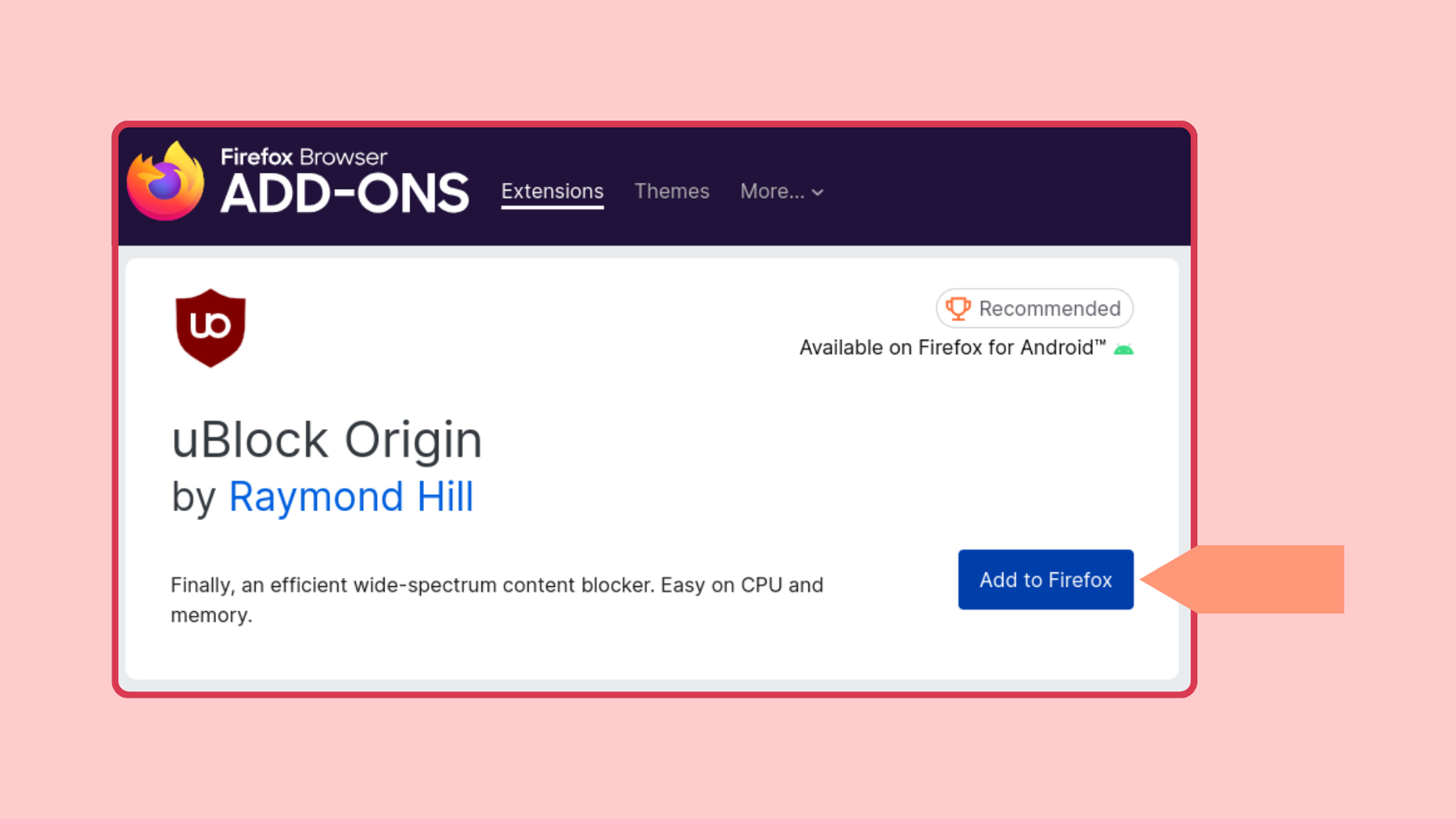

2. Enable the ad-block extension in your browser
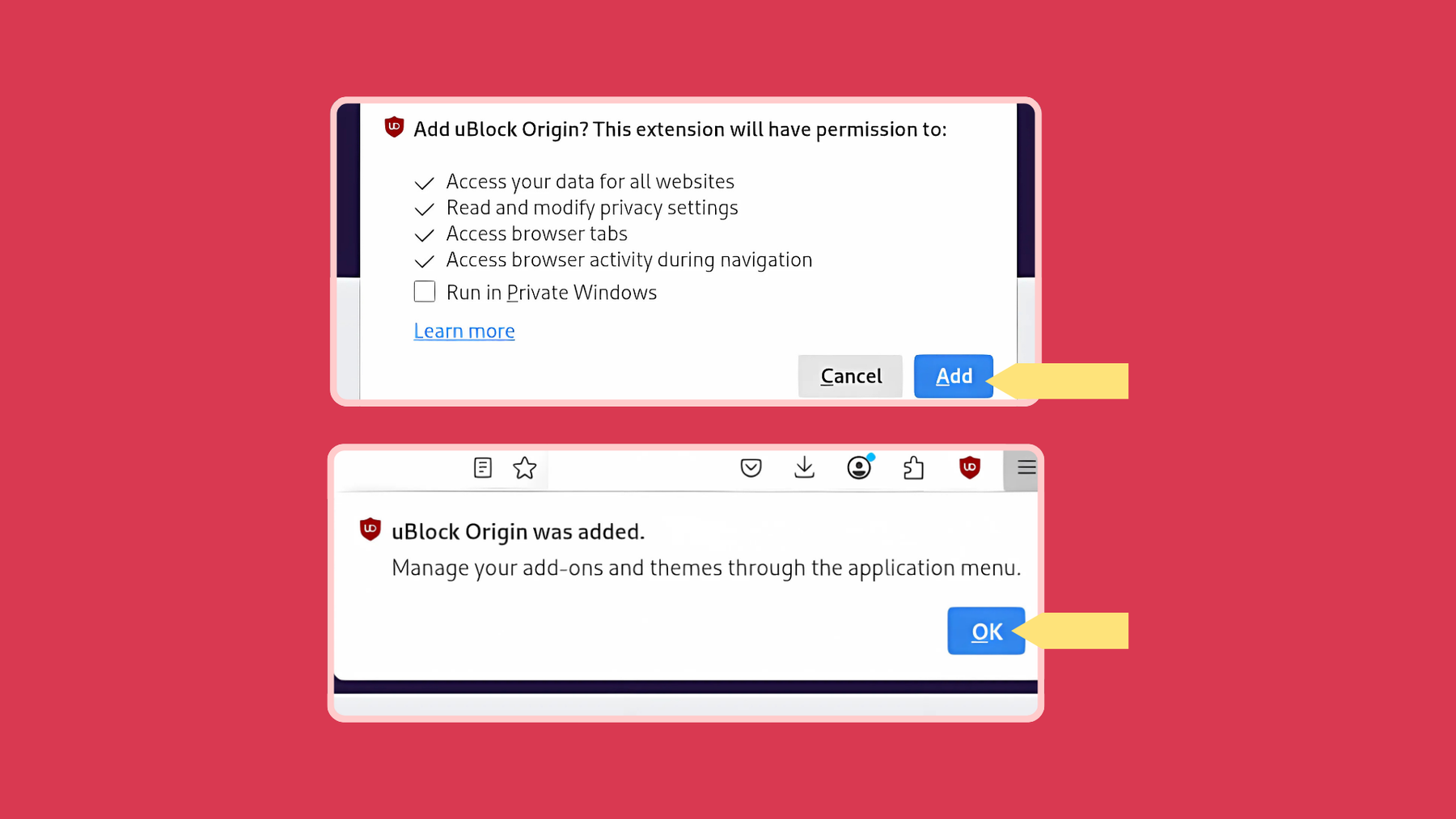

2. Enjoy how Gmail ads are blocked
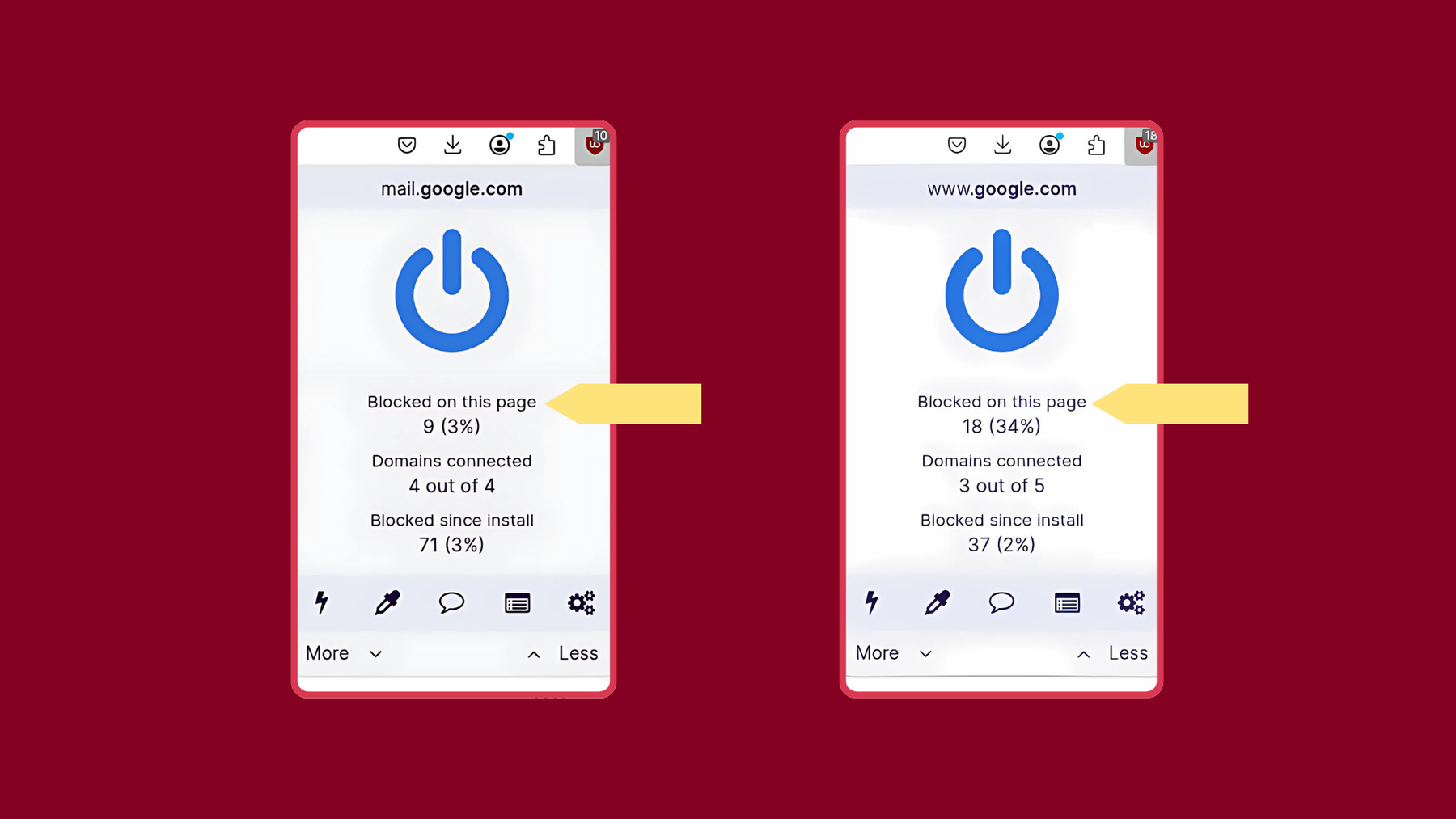

Data mining and privacy intrusion
The increasingly annoying ad tactics by Big Tech are fueled by massive data mining. The advertisement companies need this tracking data for being able to show targeted, personalized ads. This is a massive intrusion into people’s privacy, but it’s also causing a decline of the ad-based business since people increasingly opt for ways to block ads and leave services with too many ads altogether.
Tuta - along with other privacy-first companies - has already sent an open letter to the EU calling on legislators to ban personalization of ads as it destroys the free and open internet. The ad-based business model gives companies that use and abuse user data a competitive edge as these companies generate so much money with the advertisements that they can easily outrun the competition that fights for a better internet, one where your privacy is being respected.
At Tuta Mail we put your privacy and security front and center. User data is encrypted end-to-end, there’s no data mining, and no profiling.
How Google uses your data to personalize advertisements
Despite common misconceptions, Google doesn’t directly share your email address with advertisers or reads your emails to show personalized ads - though Google’s AI Gemini says it would use Gmail email data to answer your questions.
The truth is, Google does not need to read your emails to know everything about you.
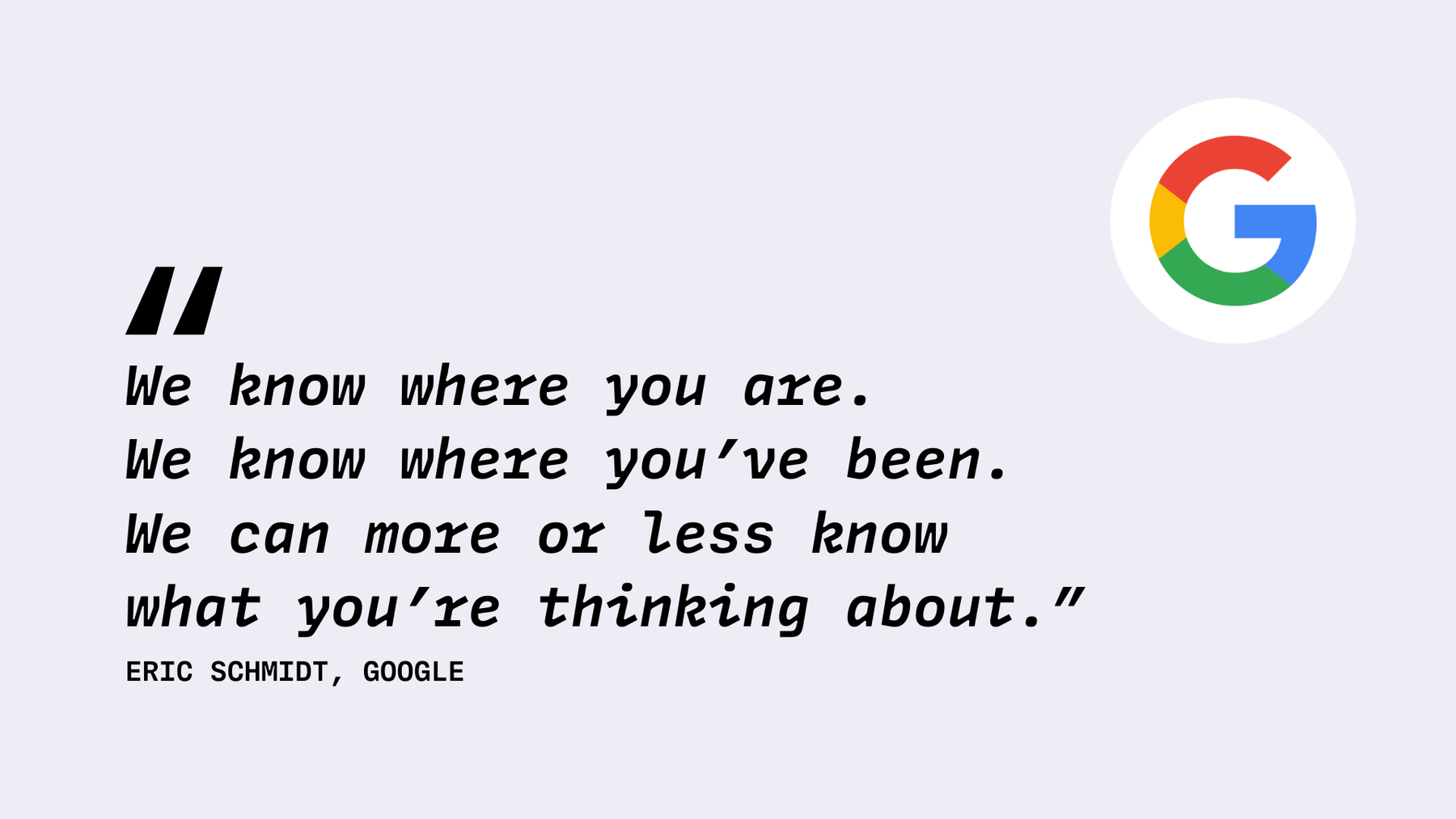

Instead, it relies on its vast data collection from search history, YouTube views, and other behaviors within the Google ecosystem to display ads within Gmail. Many users feel this level of tracking goes too far, especially as Google combines behavioral data with retargeting.
These ads, embedded so closely with genuine emails, feel more intrusive than ever, and because of this many users have started to question whether they can still trust Google and its ad-based business.
Make the switch, enjoy privacy
If Google’s ad practices have made Gmail an uncomfortable experience for you, it’s time to de-Google!
While you can adjust your Google preferences, for instance by disabling the Social and the Promotion tab, by installing ad-blockers, and by turning off personalization in your Ad Settings in Gmail to stop Google from the intrusively targeted ads, you will not be able to get rid of advertisements in Gmail completely, as Google is saying so itself.
To enjoy a completely ad-free email experience, you need to quit Gmail for good and replace it with a private alternative like Tuta Mail.
Privacy-centered email services like Tuta Mail offer an ad-free, encrypted email experiences, putting your privacy above all - even above any potential ad revenue.
Switching to a privacy-focused provider like Tuta Mail is fast, easy, and - best of all - your email account remains free while freeing you from any form of annoying advertisements at the same time!

